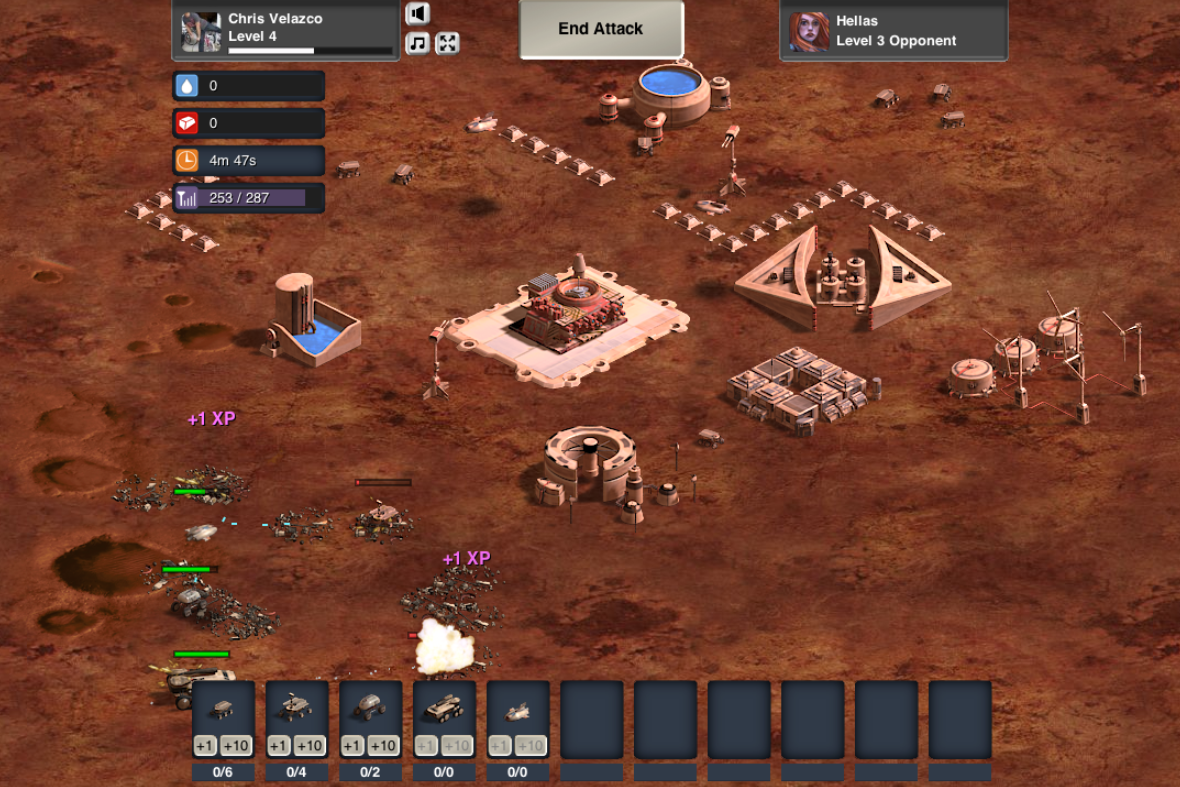There’s no shortage of HTML5 games (or developers for that matter) out there, but most of them don’t offer much competition for more graphically-intensive, engrossing native games.
“You can run StarCraft on your PC, but the best game you can in your browser is, like, FarmVille,” SpinPunch co-founder Ian Tien told me. While he’s quick to note that there’s nothing wrong with tilling fields and raising livestock, the games powered by the Y Combinator-backed startup’s HTML5 platform aspire to break down that quality distinction by being faster-paced, and more visually rich than the rest.
Mountain View-based SpinPunch was founded by ex-Microsoftie Tien and Dan Maas, a software developer and 3D animator who won an Emmy for his work on a documentary called “Five Years on Mars”. The two were friends for a long time before they eventually came to the conclusion that gaming in a web browser can, well, suck.
“There were all these games on the web and they just weren’t very fun for us,” Tien said. “Silly web games don’t interest me.”
To highlight the power of their “high performance” in-house HTML5 platform, the SpinPunch team decided to offer up their own take on a classic (and hard to nail) genre for their first game: real-time strategy. It’s a tricky endeavor for sure, but the SpinPunch team thinks of as a trial by fire — after all, gamers don’t take very kindly to gameplay-cripping bugs no matter how impressive the technology behind it is. Called Mars Frontier, the HTML5 Facebook game plays home to something like 140,000 monthly actives (or so AppData tells me), and puts users in the midst of a Martian conflict between multiple maladjusted AIs.
Naturally, your task is to harvest resources, bulk up your base defenses, raise a robot army, and lay the smack down.
The premise is a bit silly, but SpinPunch’s credit Mars Frontier is a surprisingly compelling game and not really the sort of thing one would normally equate with HTML5. It’s not unusual to see legions of Martian droids and rovers duke it out with lasers (with plenty of explosions and particle effects, no less) — Tien tells me that the game is capable of keeping tabs on nearly 200 AI-controlled robots, a feat that requires plenty of back-end analytics to help quash issues maintain balance within the game world. The SpinPunch platform also allows for quick, thoughtful downloading of game assets only when they’re needed in addition to the support for fast-paced gameplay and graphical pizzazz. Mars Frontier’s mostly mouse-driven interfaces takes a fair bit of getting used to — it was meant to simplify the experience for RTS newcomers — but popping into settings lets you switch over to a more Starcraft-ian control scheme.
Mars Frontier is certainly an impressive game (albeit one that I sort of suck at), but I had to ask: why HTML5? Why now? Tien thinks the shift toward building more compelling browser-based gaming experiences is a matter of course, but doesn’t see too many players in the space really trying to push HTML5’s limits. I’m sure a few companies would disagree with that assessment — Palo Alto-based Artillery recently locked up $2.5 million for a similar mission and newcomer Goko threw its hat into the ring just yesterday.
“It’s just a matter of time before the entire games industry moves to the browser, since the distibution advantage is so powerful,” Tien noted. Though the potential for tremendous reach is there, the shift isn’t going to happen overnight, but SpinPunch seems intent on riding the bleeding edge until it does.
As far as monetization, well, the team looks at it as something to worry about down the line. In fairness, it’s still early days for the SpinPunch team, and they have full confidence that the economics will work themselves out. That said, they’ve been pondering a few ideas to implement once their offerings grow a bit more, including the prospect of using the platform to build games for third parties. That said, Tien and Maas aren’t keen to start on external projects quite just yet — they want to keep the platform strictly in-house for the time being as they continue to grow it, despite already seeing interest from game studios and publishers.

